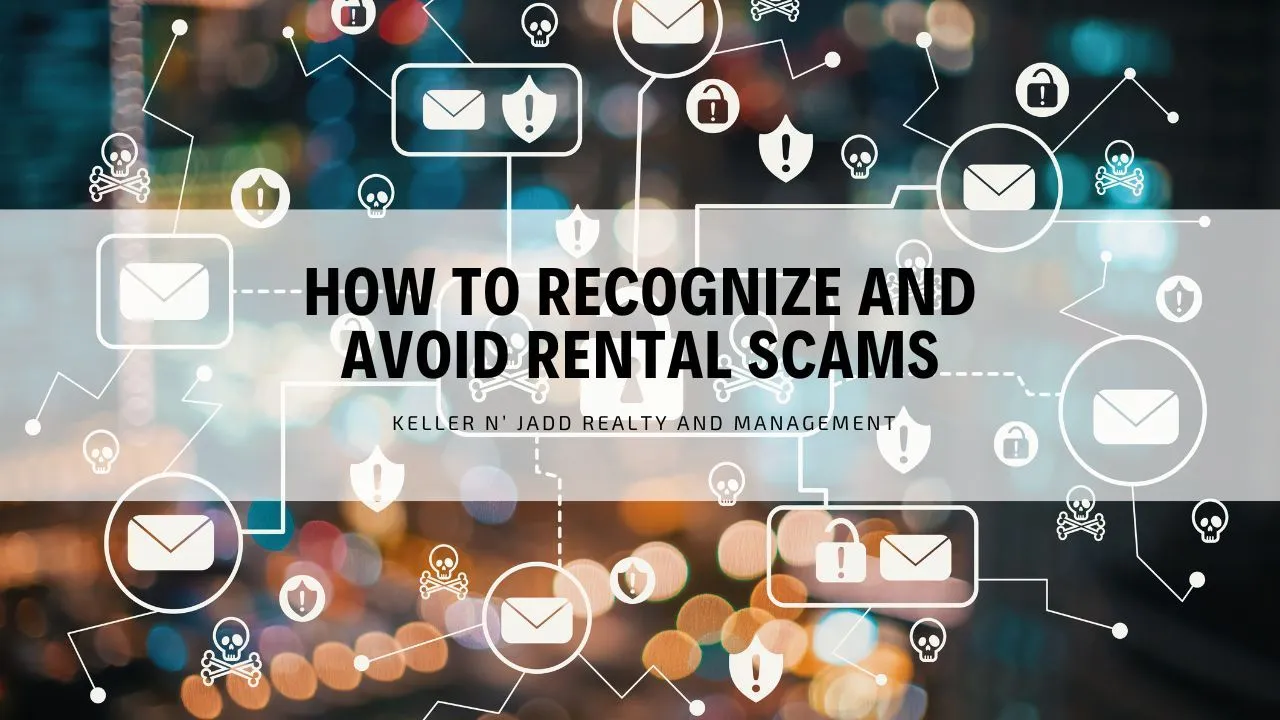Owning rental property can be a smart and profitable investment. Renting out a unit can supplement your income, and if you own multiple units or a multi-family property, it’s even possible to live entirely off your rental earnings.
You’ll also benefit from long-term property appreciation, building wealth over time. But despite these advantages, rental property ownership comes with its share of risks.
Landlords often face challenges such as difficult tenants, expensive repairs, vacancies, break-ins, and legal compliance issues. In recent years, rental scams have become an increasingly serious concern for both landlords and tenants.
Scammers today are more sophisticated than ever. They may pose as prospective tenants, agents, or property managers, and can even forge legal documents or checks. Without proper vigilance, landlords can suffer significant financial losses—or worse, lose control of their property entirely.
To help protect yourself, the team at Keller n' Jadd Realty & Management has put together this guide on the most common rental scams and how to avoid them.
Fake Check Scam
This is one of the oldest tricks in the book and is not specific to real estate settings. Unfortunately, thousands of people still fall for it every year.
The fake check scam consists of scammers posing as interested tenants. They may fill out the application form or come in person for a showing and show interest in renting the property.
When their application is accepted, they’ll send the landlord a check to cover the first month of rent, deposit, and any additional expenses agreed on. The catch? They’ll write a check for a higher amount and, upon realizing their “mistake,” will ask the landlord to refund the excess amount.
However, because they used a fake check, unsuspecting landlords will end up digging into their own pockets to “return” that money. By the time the check bounces, landlords are left with empty property and less funds than they started with.
Because of this scam, many landlords avoid accepting checks at all. However, if you don’t want to take such extreme measures, you can accept checks but not move forward with the leasing process until they’re fully processed by your bank.
If a prospective tenant ever overpays, return the check immediately to avoid problems altogether. If it was an honest mistake, they won’t have a problem writing you a new check with the correct amount.
Fake Tenant Application
Every landlord knows that effective tenant screening is crucial for avoiding problematic renters. Unfortunately, scammers know this too and have found ways to trick their way through the screening process.
They’ve learnt how to fake pay stubs, credit reports, government official documents like driving licenses, and even references. They often ask other scammers to pose as former landlords or employers. All to make themselves or a third party look like an ideal renter.
The only way to prevent falling for this scam is by doubling down with your screening efforts. Do not simply take applicants’ words for granted. Instead, make sure to double-check all the information they include in their applications.
Instead of accepting the provided credit reports, run the necessary checks yourself and Google employers to contact them directly. The more thorough you are, the easier it’ll be to spot scammers.
Fake Service Animals
In compliance with fair housing laws, landlords cannot turn down tenants with service animals. Moreover, they’re required to provide reasonable accommodations to any tenants who may require the help of a service animal.
Because pet-friendly rentals are scarce, it’s not uncommon for some tenants to falsely claim their pet is an Emotional Support Animal (ESA) or service animal by forging ESA documents.
To avoid falling for this scam, it’s important to screen all animals that may live in your home, even if they’re service animals. Request the tenants to provide copies of all official documents and verify they’re real.
Additionally, you should take the time to meet them in person. Emotional support and service animals are well-trained, so an animal who may seem overly agitated or even reactive during the meeting is unlikely to be an official service animal.
Fake Listing Scam
Online listings are great for reaching a wider audience with minimal effort. However, scammers often browse real estate websites looking for potential victims.
A common scam consists of them stealing landlords’ listings and reposting them as their own. They’ll trick unsuspecting tenants, making them pay in advance for renting the property and then ghosting them. Angry tenants may come knocking on your door, demanding their money back.
This can be annoying for whoever’s living on the property, be it you or real tenants. Moreover, victims may take to social media to warn others about renting your property, seriously damaging your reputation.
If you’re actively advertising your property, this can make it incredibly difficult to fill your vacancies. To avoid falling for this scam, you should regularly monitor real estate websites or use tools like Google’s reverse image search to spot fake listings and immediately report them.
Fake Real Estate Agents or Property Managers
Scammers sometimes pose as real estate agents or property managers to deceive landlords, especially those actively listing properties for rent. These fraudsters may claim to represent interested tenants or buyers, offering to handle the transaction on behalf of a client.
In some cases, they might request access to property details, financial information, or even upfront fees for services that are never rendered. Their goal is often to steal money or sensitive data by exploiting a landlord’s desire to lower vacancy rates or close a deal.


